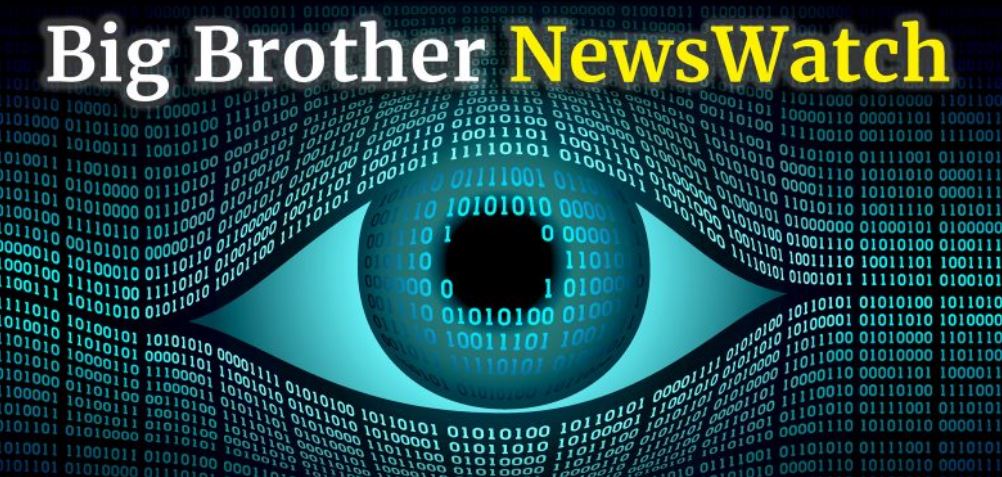This article comes from “childrenshealthdefense.org”
The Department of Homeland Security (DHS) used mobile location data to track people’s movements on a much larger scale than previously known, according to new documents unearthed by the American Civil Liberties Union (ACLU).
It’s no secret that U.S. government agencies have been obtaining and using location data collected by Americans’ smartphones. In early 2020, a Wall Street Journal report revealed that both Immigration and Customs Enforcement (ICE) and Customs and Border Protection (CBP) bought access to millions of smartphone users’ location data to track undocumented immigrants and suspected tax dodgers.
However, new documents obtained by the ACLU through an ongoing Freedom of Information Act (FOIA) lawsuit now reveal the extent of this warrantless data collection. The 6,000-plus records reviewed by the civil rights organization contained approximately 336,000 location points across North America obtained from people’s phones. They also reveal that in just three days in 2018, CBP obtained records containing around 113,654 location points in the southwestern United States — more than 26 location points per minute.
Bossware: Your Employer May Be Tracking You During Remote Work
It’s called “bossware,” and it’s a sneaky type of surveillance technology that allows employers to keep tabs on workers — often without them knowing.
“The average employee will accept the job and say, ‘OK, I like the benefits, I like the salary, I’m going to sign on the dotted line.’ And of course, they’re also signing away all of their privacy rights,” says Alex Alben, a professor of internet law at the University of California, Los Angeles.
He and other experts note that the use of bossware increased during the pandemic as employers handed out laptops to workers and told them to set up shop at home.
What they may not have disclosed is the presence of bossware, which allows the company to track keystrokes, mouse movements, browsing habits and websites visited.
Android Apps Can Now Potentially Lie About the Data They Collect
Android apps often collect all sorts of data about you and your device, like name and location, as well as sometimes having access to your photos or messages, among other things. So, it’s vital that you understand what degree of access an app is going to have before downloading it, something that’s now been made that much harder to understand.
That’s because Google recently rolled out a new feature called ‘Data safety’, which requires app developers to disclose the data that their apps collect, whether the data is being shared with third parties and the app’s security practices. That sounds like a promising step, and if this was just an addition it would be, but Google is also quietly removing the app permissions list from store listings.
This change wasn’t announced by the company but has been spotted by Mishaal Rahman (senior technical editor at Esper).
How Companies Subtly Trick Users Online With ‘Dark Patterns’
An “unsubscribe” option that’s a little too hard to find. A tiny box you click, thinking it simply takes you to the next page, but it also grants access to your data. And any number of unexpected charges that appear during checkout that wasn’t made clearer earlier in the process.
Countless popular websites and apps, from retailers and travel services to social media companies, make use of so-called “dark patterns,” or gently coercive design tactics that critics say are used to manipulate peoples’ digital behaviors.
The term “dark patterns” was coined by Harry Brignull, a U.K.-based user experience specialist and researcher of human-computer interactions.
Twitter’s Global Agenda, With or Without Musk
Twitter, weakened and distracted by months of conflict, faces a raft of global problems that won’t wait while a Delaware court decides the fate of Elon Musk‘s acquisition deal.
Whoever ends up owning it, Twitter remains the world’s nervous system for news, and its policies on elections, extremism, misinformation, harassment and censorship affect billions around the world and in the U.S.
Voice Tech Is Part of the Future of Doing Business
Many are becoming aware of the fact that artificial intelligence will be big in the future of work and business. If you are paying attention, you already see a range of AI-powered tools supplementing human work and making businesses more efficient and effective.
One of the ways in which AI will have the biggest impact is with voice technology. Advances in branches of AI, such as natural language processing, have taken voice technology a long way. Voice tools are now much better at understanding human language. They can take commands almost seamlessly, and they can now provide meaningful responses to commands and queries.
What does this mean for business? Voice tech is going to change the way companies operate. And we are already starting to see a number of voice tools transforming the future of business.
